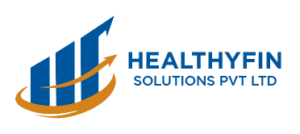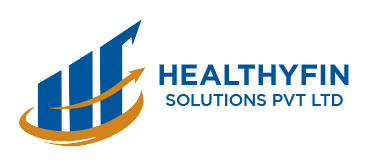Loans
At Healthyfin Solutions, we recognize the individuality of each borrower's needs. This is why we provide a wide array of loan options tailored to diverse financial requirements. Our goal is to support you in accomplishing your objectives, whether you're looking to buy a new vehicle, launch a business, or enhance your home through renovations.
Loan FAQ's
The minimum credit score needed for personal loan approval varies among lenders and depends on factors such as the loan amount, term, income, and work history. Generally, most lenders consider a credit score of 650 or higher sufficient for approval. However, for more favorable terms and lower interest rates, some lenders may require a score of 700 or above.
The minimum salary requirement for personal loan eligibility varies based on the lender's criteria. In India, many lenders typically set the threshold at Rs. 15,000 per month. Falling below this income level may result in not meeting the eligibility criteria for a personal loan with these lenders.
Yes, individuals with existing home loans can still apply for personal loans. However, lenders may consider the borrower's overall financial obligations, including the existing mortgage, when assessing repayment capacity for the personal loan.
Yes, it's possible to apply for a personal loan without a salary slip. Instead, alternative financial documents may be accepted to validate income, such as an income certificate from the employer, bank statements showing regular deposits, Income Tax Returns (ITR), or Form 16.
Yes, personal loans can be used for marriage expenses. However, borrowers should carefully consider their ability to repay the loan, as defaulting can negatively impact credit scores and financial stability.
Yes, prepayment penalties may apply when repaying a personal loan early. These fees vary by lender and may be either a fixed amount or a percentage of the outstanding loan balance.
The maximum loan amount you can secure through a personal loan in India is contingent upon various factors, including your income, credit score, repayment capability, and the lending institution's policies.
Defaulting on loan payments can lead to severe repercussions on your credit score and financial standing. Consequences may include late fees, penalties, legal action, collection calls, and potential collateral seizure.
A business loan is funds borrowed from a bank to support various business-related expenses, including expansion, equipment purchase, working capital, and operational needs.
Business loans come in various forms, including term loans, lines of credit, equipment financing, Small Business Administration (SBA) loans, invoice financing, and merchant cash advances, tailored to meet diverse business requirements.
Qualification criteria for business loans vary, often considering factors such as your business's creditworthiness, financial stability, time in operation, revenue, and the intended purpose of the loan.
The amount you can borrow through a business loan depends on factors such as your business's financial health, the lender's policies, and the loan type. Lenders typically evaluate your business's revenue and repayment capability when determining the loan amount.
Interest rates for business loans fluctuate based on factors like loan type, lender, your creditworthiness, and prevailing market conditions. Generally, a good credit history and robust business performance may result in lower interest rates.
The application process typically involves filling out a form, submitting necessary documents such as a business plan and financial statements, and potentially undergoing a credit check.
Commonly required documents include business and personal tax returns, financial statements, business licenses, bank statements, and a detailed business plan.
Business loans can be utilized for various purposes, including expansion, purchasing inventory or equipment, hiring employees, refinancing existing debt, and other operational needs.
Many loans permit early repayment, although some may impose prepayment penalties. It's essential to review the terms of the loan agreement before proceeding with early repayment.
A home loan, provided by financial institutions, facilitates the purchase or refinancing of a home. Repayment is typically made through monthly installments over a predetermined term.
Eligibility factors often include credit score, income, employment history, and the appraised value of the property being financed.
An EMI, or Equated Monthly Installment, refers to the fixed monthly payment made towards repaying a home loan. Typically, it encompasses both principal and interest portions.
Yes, home loans do allow for prepayment or early repayment.
Missing an EMI payment can lead to penalties, increased interest costs, and a negative impact on your credit score.
A Loan Against Property (LAP) is a secured loan where you leverage your property as collateral to obtain funds for various purposes such as business expansion, education, medical expenses, and more.
LAP funds can be utilized for diverse needs including new business expansion, working capital, machinery purchase, medical emergencies, debt consolidation, and home renovations.
The loan amount typically depends on the property's value, often ranging from 50% to 70% of its market value, influenced by factors like property type and location.
LAP generally offers longer repayment periods, extending from 5 to 20 years, contingent upon the lender's terms and your repayment capacity.
LAP interest rates are usually lower compared to unsecured loans and can be fixed or floating, dependent on market conditions, lender policies, and your creditworthiness.
While making regular payments, you can continue to use the property. However, selling or transferring ownership is typically restricted until the loan is settled.
Yes, you can undertake a Balance Transfer with LAP if you secure a lower rate of interest or better loan terms.
Yes, you can obtain a Top-up from your existing bank, as well as consider a balance transfer.
A car loan is a financial product designed to assist you in purchasing a vehicle. You repay the loan through installments, typically with interest, until the total loan amount is fully paid off.
A fixed interest rate remains unchanged throughout the loan term, while a variable interest rate may fluctuate based on prevailing market conditions, thereby impacting your monthly payments.
New car loans are intended for the acquisition of brand-new vehicles, often featuring lower interest rates. Conversely, used car loans cater to pre-owned vehicles and may carry slightly higher interest rates due to depreciation.
An education loan is a financial product specifically crafted to assist students and their families in covering expenses associated with higher education, encompassing tuition fees, books, living expenses, and more.
Eligibility criteria include factors such as admission to an eligible program, citizenship or residency status, academic performance, and other pertinent considerations.
A moratorium period denotes a grace period during which borrowers are not obligated to make loan repayments, typically occurring after graduation or upon commencement of employment. However, interest may accumulate during this timeframe.
Repayment usually commences after the conclusion of the moratorium period, as outlined in the terms of the loan agreement.
Depending on your credit history and income, lenders may necessitate a co-borrower or guarantor to secure the loan.
Typically, 60-75% of the gold's appraised value is offered as a loan, contingent on the purity and weight of the gold.
In the event of non-repayment, the lender may opt to auction the pledged gold to recover the outstanding loan amount.
A gold loan is a secured borrowing where gold ornaments or assets are utilized as collateral to obtain funds from a financial institution.

